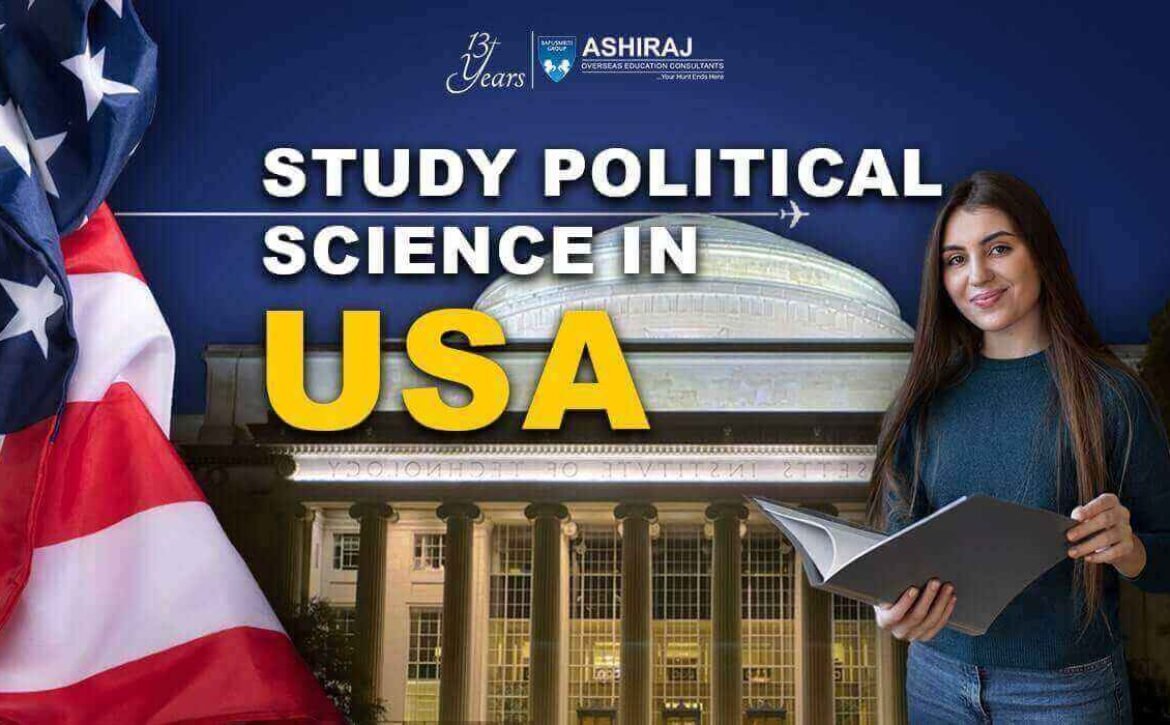
Political Science in USA
Political Science in the USA delves into the intricate dynamics of American governance, exploring the structures, processes, and ideologies shaping the nation’s political landscape. From the intricate workings of the federal system to the nuances of public policy formulation, Political Science in the USA offers a comprehensive lens through which to understand the complexities of American politics. It encompasses the study of institutions such as Congress, the presidency, and the judiciary, as well as the roles of political parties, interest groups, and the media in shaping political discourse and decision-making.
Political Science in the USA also examines the diverse array of political ideologies and their impact on policymaking, elections, and public opinion. With its rich interdisciplinary nature, it draws from fields such as history, economics, sociology, and law to provide insights into the challenges and opportunities facing the American polity. As a vibrant and ever-evolving field, Political Science in the USA plays a vital role in fostering civic engagement, informed citizenship, and critical thinking about the complex issues confronting contemporary American society.
Why to Study Political Science in the USA?
- Understanding American Democracy: Political Science in the USA offers a deep dive into the mechanisms and intricacies of American democracy, including the roles of institutions, political actors, and societal forces in shaping governance.
- Insight into Policy Making: By studying Political Science in the USA, students gain valuable insights into the policymaking process at the local, state, and federal levels, equipping them with the knowledge to analyze, critique, and contribute to public policy formulation.
- Engaging with Political Ideologies: The field provides a platform for exploring a diverse range of political ideologies prevalent in the USA, fostering critical thinking and ideological awareness among students.
- Career Opportunities: A degree in Political Science from the USA opens doors to a wide array of career paths, including roles in government, public administration, international relations, law, journalism, and advocacy.
- Enhancing Civic Engagement: Political Science education promotes active citizenship by empowering individuals with the knowledge and skills needed to participate meaningfully in democratic processes, from voting and advocacy to community organizing.
- Global Perspectives: Studying Political Science in the USA offers a global perspective on political issues, enabling students to understand the interconnectedness of domestic and international politics in an increasingly interconnected world.
Top Universities to Study Political Science in USA
University | QS World University Ranking 2023 | Type of University | Average Annual Fees | Programs Offered |
Harvard University | 1 | Ivy League | $51,925 | BA in Political Science, MA in Government |
Stanford University | 3 | Private | $53,529 | BA in Political Science, MA in Political Science |
Princeton University | 5 | Ivy League | $53,890 | BA in Politics, MA in Public Affairs |
Massachusetts Institute of Technology (MIT) | 8 | Private | $52,790 | BA in Political Science |
University of California, Berkeley | 12 | Public | $14,312 (in-state), $44,066 (out-of-state) | BA in Political Science, MA in Political Science |
Studying Political Science in the USA offers a plethora of opportunities for academic excellence and career advancement. Here are the top universities renowned for their Political Science programs, according to the QS World University Rankings 2023:
- Harvard University: With its prestigious Ivy League status, Harvard offers a comprehensive range of Political Science programs at both undergraduate and graduate levels, attracting students from around the globe.
- Stanford University: Renowned for its cutting-edge research and interdisciplinary approach, Stanford’s Political Science department provides students with a robust educational experience.
- Princeton University: Another Ivy League institution, Princeton excels in offering rigorous programs in Politics and Public Affairs, preparing students for leadership roles in government, academia, and beyond.
- Massachusetts Institute of Technology (MIT): Despite its STEM-focused reputation, MIT’s Political Science department stands out for its innovative approach to understanding political phenomena.
- University of California, Berkeley: As a leading public university, UC Berkeley offers high-quality Political Science education at a relatively affordable cost, making it accessible to a diverse range of students.
Course Curriculum for Political Science in USA
- Foundational Courses: Political Science in USA typically begins with introductory courses covering key concepts such as political theory, comparative politics, American government, and international relations.
- Specialized Tracks: Students can tailor their studies by choosing from a variety of specialized tracks, including public policy, political economy, international relations, and political philosophy, allowing them to focus on areas of personal interest.
- Research Methods: Political Science programs emphasize research methodologies, equipping students with the skills to analyze data, conduct surveys, and critically evaluate academic literature.
- Capstone Projects: Many programs culminate in capstone projects or senior theses, where students apply their knowledge and skills to undertake original research on a topic of their choice under the guidance of faculty mentors.
- Internship Opportunities: Political Science students in the USA often have access to internship opportunities with government agencies, non-profit organizations, think tanks, and advocacy groups, providing real-world experience and networking opportunities.
Political Science in USA offers a dynamic and interdisciplinary curriculum designed to provide students with a comprehensive understanding of political systems, processes, and theories, preparing them for diverse career paths in politics, public service, academia, and beyond.
Eligibility Criteria & Admission Requirements for MS in Political Science in USA
- Language Proficiency: Applicants are typically required to demonstrate proficiency in English through standardized tests such as IELTS or TOEFL. A minimum score of 7.0 in IELTS or 100 in TOEFL is commonly expected.
- Standardized Tests: Most programs require applicants to submit scores from either the GRE or GMAT exams. A competitive score on these tests is essential for admission. The average GRE score for admitted students varies by institution but generally falls within the 160-165 range for the verbal and quantitative sections.
- Academic Qualifications: Candidates must hold a bachelor’s degree from an accredited institution, preferably in Political Science or a related field. Strong academic performance, demonstrated through transcripts and academic certificates, is crucial.
- Work Experience: While not always mandatory, relevant work experience in politics, government, or related fields can strengthen an application. This could include internships, volunteer work, or professional experience.
- Passport & Student Visa: International applicants must possess a valid passport and obtain a student visa to study in the USA. The visa application process typically involves providing proof of acceptance to a US institution, financial documentation, and completing an interview at the US embassy or consulate.
Test | Minimum Score |
IELTS | 7.0 |
TOEFL | 100 |
GRE | 160 (Verbal), 160 (Quantitative) |
GMAT | 650 |
Political Science in USA programs attract a diverse pool of applicants, and meeting these eligibility criteria is essential for securing admission to top institutions and embarking on a rewarding academic journey.
Documents Required for Studying Political Science in USA
- Passport: A valid passport is required for international students applying to Political Science programs in the USA.
- Letters of Recommendation (LOR): Typically, applicants need two or three LORs from teachers, professors, or employers who can attest to their academic abilities, character, and potential for success in the program.
- Statement of Purpose (SOP): The SOP is a personal essay outlining the applicant’s academic background, career goals, reasons for choosing Political Science, and why they are a good fit for the program.
- Curriculum Vitae (CV): A comprehensive CV detailing the applicant’s educational background, work experience, research projects, publications, and any relevant achievements.
- Official High School Transcripts and Educational Certificates: Applicants must provide transcripts and certificates from their high school or secondary education, demonstrating academic performance and completion of required coursework.
- Work Experience Certificate: If applicable, applicants should submit a work experience certificate or letter from previous employers documenting relevant professional experience.
- Proof of Financial Resources: International students are required to demonstrate sufficient financial resources to cover tuition, living expenses, and other costs associated with studying in the USA.
Ensuring all required documents are prepared and submitted accurately and on time is crucial for a successful application to Political Science programs in the USA.
Admission Process for Political Science in USA
- Research Institutions: Begin by researching universities offering Political Science programs in the USA, considering factors such as faculty expertise, program reputation, and location.
- Application Preparation: Gather required documents, including transcripts, standardized test scores (GRE/GMAT, IELTS/TOEFL), letters of recommendation, statement of purpose, and resume.
- Standardized Tests: Register for and take required standardized tests (GRE/GMAT, IELTS/TOEFL), ensuring scores meet minimum requirements set by target institutions.
- Application Submission: Complete online applications for chosen universities, paying attention to deadlines and specific requirements for each program. Submit all required documents and application fees.
- Review and Interview: Universities review applications holistically, considering academic achievements, test scores, essays, and recommendations. Some programs may require interviews as part of the evaluation process.
- Admission Decision: After a thorough review, universities notify applicants of admission decisions. Accepted students receive formal admission letters and are provided with instructions for enrollment.
- Visa Application: International students accepted into Political Science programs must apply for a student visa (e.g., F-1 visa). This involves completing visa application forms, scheduling an interview at the nearest US embassy or consulate, and providing the required documentation.
- Enrollment: Upon receiving a visa, accepted students confirm their enrollment by submitting required forms, paying deposits, and registering for classes.
Navigating the admission process for Political Science in USA programs requires careful planning, attention to detail, and meeting deadlines to maximize chances of acceptance into desired institutions.
“Education is the most powerful weapon which you can use to change the world.”
Nelson Mandela
Cost of Political Science Course in USA
- Tuition Fees: Tuition fees for Political Science programs in the USA vary widely depending on the institution, ranging from approximately $10,000 to $70,000 per year for undergraduate programs and $15,000 to $80,000 per year for graduate programs.
- Living Expenses: In addition to tuition, students must budget for living expenses, including accommodation, meals, transportation, and personal expenses. These costs can range from $10,000 to $20,000 per year, depending on the location and lifestyle.
- Financial Aid: Many universities offer financial aid in the form of scholarships, grants, and assistantships to help offset the cost of tuition and living expenses for eligible students. International students may have access to merit-based and need-based scholarships.
- Part-time Work: Some students choose to work part-time while studying to supplement their income. However, employment opportunities for international students may be limited due to visa restrictions.
- Health Insurance: International students are typically required to have health insurance coverage while studying in the USA. Universities often offer health insurance plans for purchase, which can cost approximately $1,000 to $3,000 per year.
Understanding the cost of studying Political Science in USA is essential for planning finances and ensuring a smooth academic journey. Students need to explore various funding options and budget wisely to manage expenses effectively.
Scholarships for Political Science Courses in USA
Scholarship Name | Amount | Application Deadline | Eligibility Criteria |
Fulbright Scholarship | Varies | October 2024 (Annual) | Open to international students pursuing graduate studies in the USA |
Rhodes Scholarship | Full tuition, stipend | October 2024 (Annual) | Open to graduate students demonstrating academic excellence and leadership |
Truman Scholarship | Up to $30,000 | February 2025 (Annual) | For US citizens committed to public service and leadership |
Gates Cambridge Scholarship | Full tuition, stipend | December 2024 (Annual) | For international students pursuing graduate studies at Cambridge University |
Rotary Peace Fellowship | Tuition, stipend | Varies | For individuals committed to peace and conflict resolution |
Securing scholarships can significantly alleviate the financial burden of studying Political Science in the USA. Students need to research and apply for scholarships well in advance, paying close attention to eligibility criteria and application deadlines. Additionally, exploring other funding options such as grants, assistantships, and work-study programs can further support academic pursuits in Political Science.
Career Opportunities After Political Science in USA
Job Profile | Average Salary |
Political Analyst | $60,000 $100,000 |
Policy Analyst | $50,000 $90,000 |
Government Affairs Specialist | $50,000 $100,000 |
Legislative Assistant | $40,000 $70,000 |
Campaign Manager | $40,000 $80,000 |
Political Science in USA offers a wide range of career opportunities across various sectors, including government, non-profit organizations, advocacy groups, and private industries. Here are some common job profiles for Political Science graduates along with their average salary ranges:
- Political Analyst: Conducts research and analysis on political trends, elections, and public opinion to provide insights to policymakers, media outlets, and political campaigns.
- Policy Analyst: Evaluates and develops public policies, assessing their impact on social, economic, and political issues and advocating for policy changes.
- Government Affairs Specialist: Represents organizations’ interests to government officials, monitors legislative developments, and influences policy decisions through lobbying and advocacy efforts.
- Legislative Assistant: Provides support to legislators by conducting research, drafting legislation, and liaising with constituents and interest groups.
- Campaign Manager: Organizes and manages political campaigns, coordinating activities such as fundraising, advertising, and voter outreach to support candidates and advance political agendas.
With their analytical skills, critical thinking abilities, and understanding of political processes, Political Science graduates are well-equipped to pursue diverse and impactful careers in the ever-evolving landscape of American politics.
Frequently Asked Questions About Political Science in USA
Political Science is the study of political systems, institutions, behavior, and theories, focusing on topics such as governance, public policy, political ideologies, and international relations.
Career options include roles in government, public administration, international relations, law, journalism, advocacy, academia, and research.
Political Science is a broader field encompassing the study of politics at all levels, while International Relations specifically focuses on the interactions between states and international organizations.
Skills include critical thinking, analytical reasoning, research skills, communication skills, and a strong understanding of political systems and theories.
A bachelor’s degree typically takes four years to complete, while a master’s degree may take one to two years. A Ph.D. in Political Science can take five to seven years or longer.
Yes, many universities offer scholarships, grants, and assistantships for Political Science students based on academic merit, financial need, and other criteria.
Yes, several universities offer online programs in Political Science, allowing students to pursue their degree remotely while balancing other commitments.
Salaries vary depending on factors such as job role, location, and level of education, but average salaries range from $40,000 to $100,000 per year.
Gain practical experience through internships, volunteer work, or student organizations, and consider pursuing graduate education or certifications to enhance your qualifications.
Admission requirements typically include a bachelor’s degree from an accredited institution, standardized test scores (such as GRE or GMAT), letters of recommendation, a statement of purpose, and transcripts.




